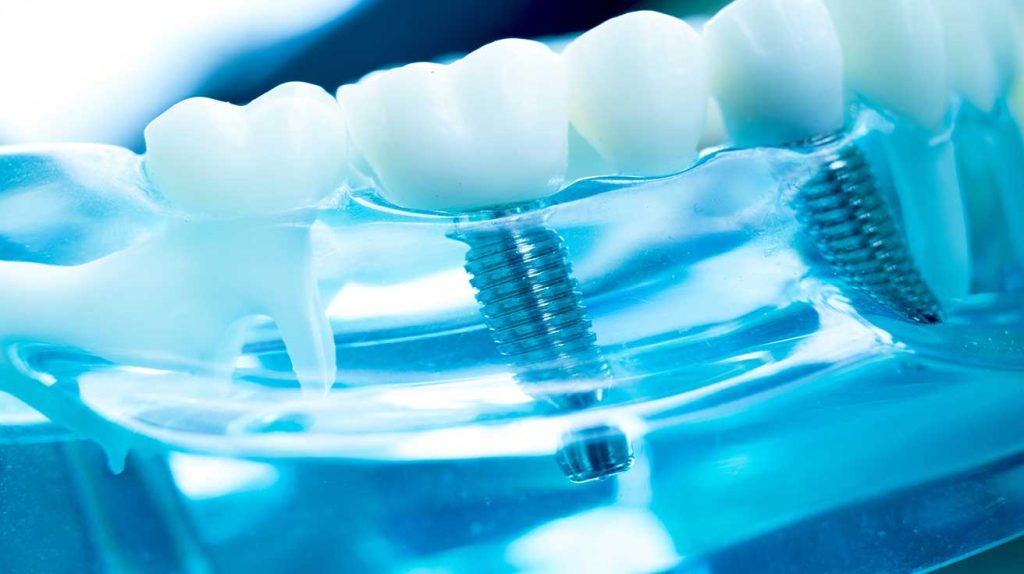
Alternatives to Dental Implants : what are the options ?
Losing a tooth is a destabilizing experience, both aesthetically and functionally. While dental implants are now the gold standard for replacing a missing tooth, they are not always suitable for every patient. Medical reasons, budget constraints, contraindications—several factors may lead individuals to seek other alternatives.
Fortunately, modern dentistry offers various solutions to restore a harmonious smile without necessarily opting for an implant. What are the advantages and disadvantages of each option? What is the best alternative for your situation? This detailed article explains everything, including a look at international solutions, particularly in Turkey, which has become an increasingly popular destination for high-quality dental care!
Why consider an alternative to dental implants ?
Although dental implants provide a durable and natural-looking solution, they may not be suitable for all patients. Several reasons explain this:
- High cost: In France, the price of an implant can range between €1,500 and €3,000 per tooth, a significant investment that is only partially reimbursed by social security and private insurance plans.
- Lack of bone density: Placing an implant requires a sufficient volume of bone in the jaw to ensure proper fixation. If the bone has resorbed after tooth extraction, a bone graft may be necessary, significantly increasing the duration and cost of treatment.
- Medical contraindications: Certain conditions (uncontrolled diabetes, osteoporosis, autoimmune diseases) or the use of specific medications can complicate healing and increase the risk of implant failure.
- Fear of surgery: Dental implant placement is still a surgical procedure, requiring an incision and a potentially long recovery period. Some patients prefer a faster and less invasive solution.
Fortunately, several alternatives exist to replace a missing tooth without opting for an implant. Let's go through them one by one!
1. The dental bridge : a classic and effective alternative
The dental bridge, also known as a fixed bridge, is a solution used to replace a missing tooth by relying on adjacent teeth. It consists of two crowns that attach to the natural teeth on either side of the gap and an intermediate element called a "pontic", which replaces the missing tooth. This device is custom-made from ceramic, porcelain, or zirconia to ensure an aesthetic result and strong resistance to chewing.
One of the main advantages of a bridge is that it requires no surgeryor bone grafting. Unlike dental implants, which sometimes require a bone graft when the jawbone is insufficient, a bridge can be placed quickly, in two to three weeks. It provides a natural appearance and allows patients to regain effective chewing function while preventing neighboring teeth from shifting, which can occur after tooth loss.
Despite its advantages, the bridge has some disadvantages that should be considered before opting for it. To ensure a solid fixation, the adjacent teeth must be trimmed, which can weaken them over time.
Moreover, its lifespan is limited—on average, 10 to 15 years—and it may not be suitable for patients with multiple missing teeth in the same area.
For patients who want to avoid altering adjacent teeth, the bonded bridge, also known as the Maryland Bridge, is an interesting alternative. Unlike the traditional bridge, it does not rely on crowns but on thin metal or ceramic wings bonded to the back of the adjacent teeth. This system allows for the replacement of a missing tooth without altering the structure of natural teeth, making it a gentler and reversible solution.
However, the bonded bridge is not recommended for posterior teeth, which are subject to higher pressure during chewing. It heavily depends on the adhesive used, and although the bonding is strong, the bridge may detach over time, requiring adjustments.
Thus, bridges, whether traditional or bonded, are fixed alternatives to implants, offering a good balance between aesthetics, speed, and affordability. The choice depends on the desired durability and the impact on adjacent teeth. In Turkey, both options are available at attractive prices with high-quality materials.
2. Removable dentures : an economical and quick solution
The removable denture, also known as a partial denture, is an affordable alternative for replacing one or more missing teeth without resorting to a fixed solution like a bridge or an implant. It consists of a resin or metal base, on which artificial teeth are attached to fit the patient’s morphology.
There are two main types of removable dentures:
- Partial dentures, which rely on the remaining teeth using metal clasps or invisible attachments.
- Complete dentures, used when no natural teeth remain on an arch.
One of its main advantages is its very affordable cost, significantly lower than that of implants or bridges.
It also offers the benefit of being reversible, meaning it can be easily replaced or adjusted over time. Unlike a bridge, it requires no intervention on adjacent natural teeth, thus avoiding weakening them.
The main disadvantage is its comfort, which may require an adjustment period of several days or even weeks. It can also lack stability, sometimes causing uncomfortable movements while chewing. Lastly, its aesthetic result is often less natural than an implant or a bridge.
3. Post and Core Tooth: An Intermediate Solution
The post and core tooth, also known as an “Inlay-core”, is a solution that allows the preservation of a healthy dental root while replacing the visible part of the tooth. Instead of completely extracting the damaged tooth, the dentist inserts a post inside the root, which serves as a support to attach an artificial crown.
This technique is often used after a root canal treatment when the tooth is too damaged to support a conventional crown. Thanks to the post and core tooth, the root continues to play its role in fixation, avoiding more invasive procedures like implants.
Its main advantage is that it avoids extraction and allows for the preservation of the natural root, which is always preferable for oral health.
Additionally, its placement is less invasive and quicker than an implant, as it does not require surgical intervention on the bone. It is also a more affordable solution.
However, the post and core tooth is not suitable for all situations: if the root is too damaged, extraction will be necessary, requiring an implant or a bridge instead. Furthermore, its lifespan is generally shorter than an implant, although proper maintenance can extend its durability.
4. Dental veneers : an alternative for damaged teeth
Dental veneers are thin ceramic or composite shells bonded to the front surface of teeth to improve their appearance. Unlike implants or bridges, they do not replace a missing tooth but rather help to correct wear, cracks, stains, or shape irregularities. They are particularly suitable for front teeth, where aesthetics play a crucial role.
If your tooth is still in place but weakened, cracked, or severely worn, a veneer can be an interesting alternative to a crown or an implant. It allows for the preservation of the natural tooth structure, as only a thin layer of enamel is removed before application.
Additionally, veneers provide a very natural and long-lasting result, with greater stain resistance than other solutions.
Veneers are not suitable for severely damaged or missing teeth. However, they are an ideal aesthetic solution for those looking to enhance their smile without undergoing major dental procedures.
In Turkey, dental veneers are very popular due to their excellent value for money and the advanced techniques used by specialized dentists.
Which alternative to choose ?
As you can see, there are several alternatives to dental implants, each suited to different situations with its own advantages and disadvantages. The choice of alternative will depend on several factors, primarily: the number of teeth to replace, the condition of adjacent teeth, budget, and personal preferences.
Thus:
- If you are looking for a fixed and durable solution, the traditional bridge is a good alternative.
- If you prefer an affordable and reversible option, the removable denture may be considered.
- If your adjacent teeth are intact, the bonded bridge helps minimize structural damage.
- If your root is still viable, the post and core tooth could be an excellent choice.
- If your tooth is damaged or aesthetically unappealing but maintains a healthy structure, a veneer is ideal!
Turkey has become a top destination for all types of dental treatments, offering modern and affordable solutions at prices significantly lower than those in Europe.
Conclusion
Dental implants are an excellent solution for replacing missing teeth, but they are not the only option. Depending on your situation, budget, and expectations, several alternatives exist to restore a harmonious smile without undergoing implant surgery.
Before making a decision, it is essential to consult a dentist to assess the most suitable option for your case. Whether in France or Turkey, the priority should be to choose high-quality dental care and work with a qualified professional to achieve the best results.

Dr. Levent Acar - Docteur